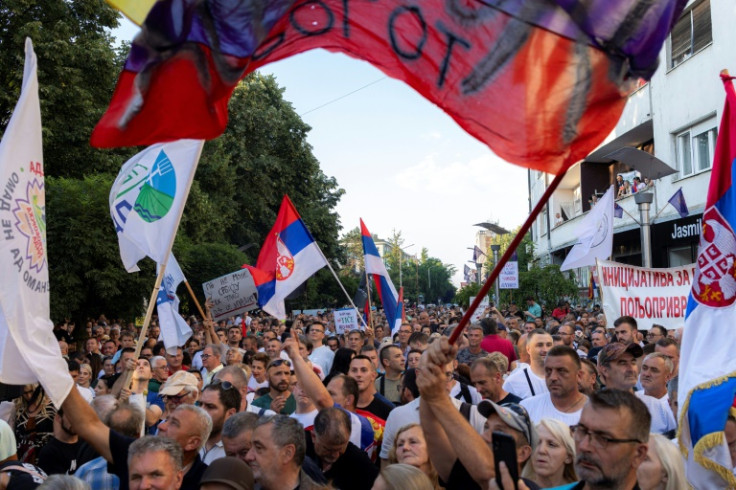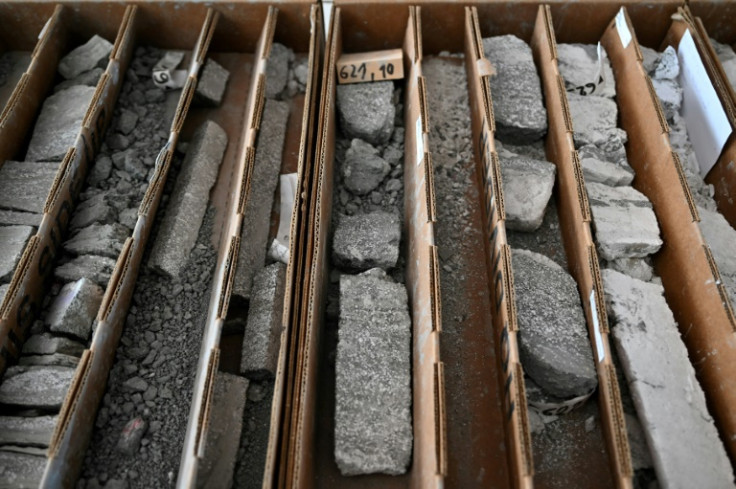
The European Union and Serbia were set to sign a deal Friday over the supply of battery materials during a "critical raw materials summit", just days after Belgrade allowed work to resume at a disputed lithium mining project.
The memorandum of understanding will be signed during the summit attended by German Chancellor Olaf Scholz, Serbian President Aleksandar Vucic and European Commission Vice-President Maros Sefcovic in the capital Belgrade.
Lithium is a strategically valuable metal crucial for making electric vehicle batteries, making it key for helping Germany's flagship automotive sector shift to greener production.
Serbia has vast lithium deposits near the western city of Loznica, where a disputed mining project run by the Anglo-Australian mining giant Rio Tinto has been a perennial political fault line in the Balkan country in recent years.
The government gave the mining project the green light to restart operations earlier this week, after revoking in 2022 the permits granted to Rio Tinto following mass protests over environmental concerns.
The announcement came after Serbia's constitutional court ruled last week that the permit cancellations were "not in line with the constitution and the law", paving the way for the government to resume the project.
Vucic, whose party won parliamentary elections in December, has said environmental protection would be a priority after extracting new assurances from the company.
German government spokesman Steffen Hebestreit said this week that the deal came against the "backdrop of a sustainable lithium extraction project" in Serbia.
Rio Tinto has said Serbia's lithium reserves in Loznica could produce an estimated 58,000 tonnes annually, enough for 1.1 million electric vehicles.
Opponents remain worried, however, over the mine's impact on the environment and public health.
Critics of the mine have long accused Vucic's government of having a poor track record with regulating its industrial sector.
Protestors also say the country is taking the biggest environmental risks with the mine for the sake of the EU's transition to a green economy.
The lithium deposits near Loznica were discovered in 2004, but weeks of protests sparked by fears for the environment and public health forced the government to halt the project.
Vucic has hinted that Serbia could begin mining lithium as early as 2028.
Ahead of the summit, Vucic said the deal would involve guarantees that limited the sale of raw materials from the country and ensure that most of the lithium exports would be through Serbian-produced batteries or component parts.
Serbia has been a candidate to join the European Union since 2012, but its prospects are seen as bleak without a normalisation of relations with Kosovo.
"The partnership will further strengthen political relations and promote long-term economic growth in Serbia and the EU, contributing to Serbia's efforts to join the EU," the Serbian government said in a statement on Thursday about the deal.









